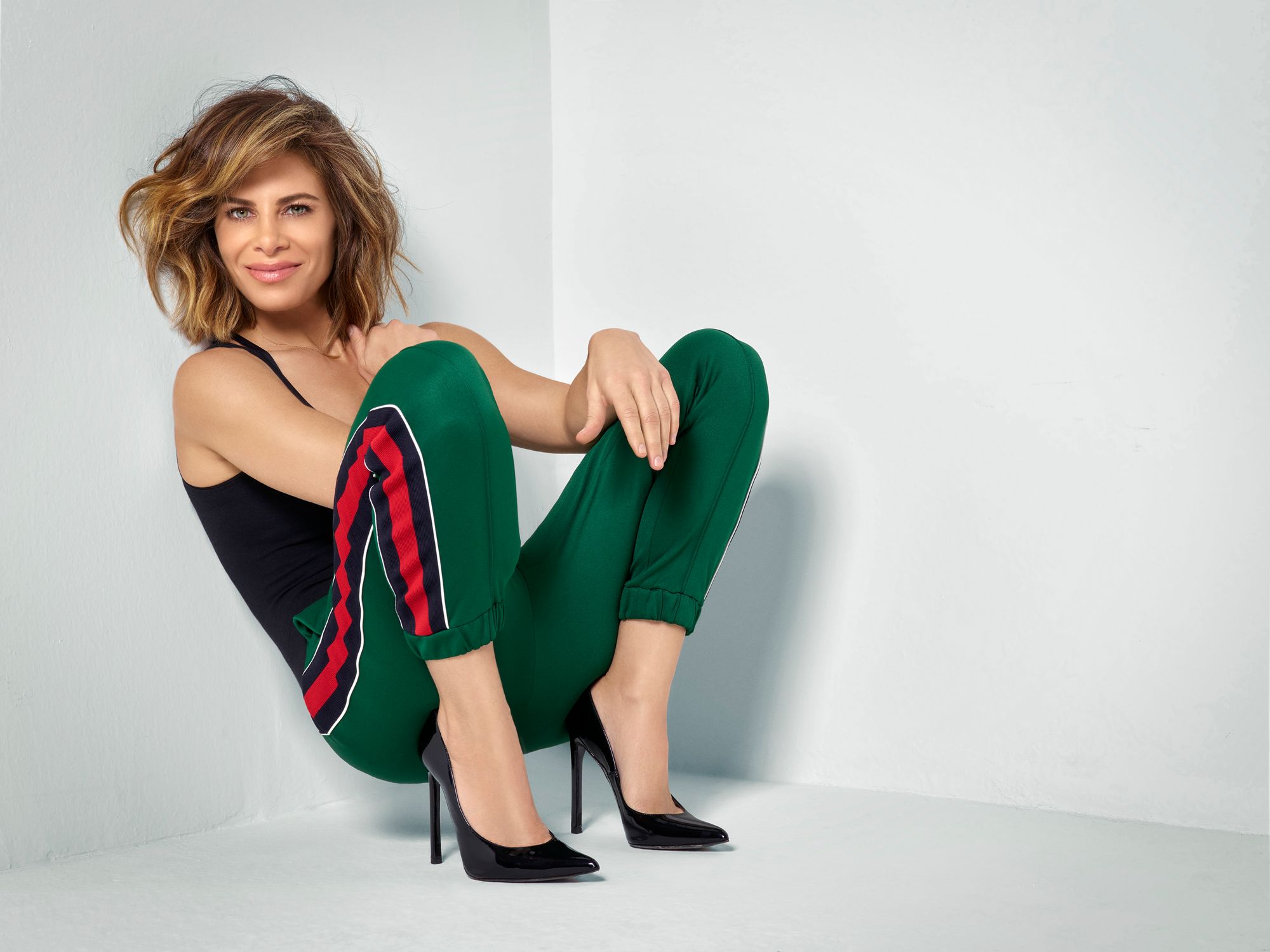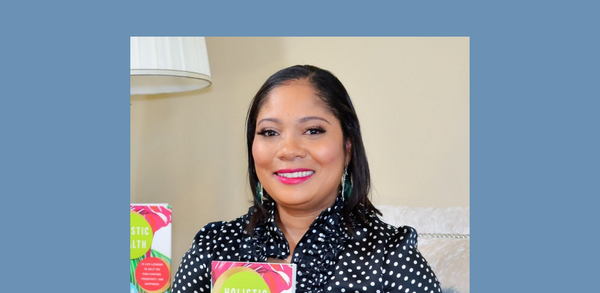Interview with Jillian Michaels on Finding Our 'Why,' Simplifying Health, and Her New Platform
As we enter 2021, America's fitness juggernaut tells us how to create sustainable health that lasts well beyond a New Year's resolution.
By Victoria Oldridge
Jillian Michaels is a fitness guru, author, media personality, and founder of the Jillian Michaels Fitness App.
Truffld: You've mentioned that you were quite heavy as a child and you bonded with your dad over eating junk food, while your mom encouraged you to take martial arts classes. Was there an inflection point where you consciously decided that health and fitness would be your life's focus?
Jillian: It was a slow evolution in conjunction with an epiphany. Food was a coping mechanism for me. It was a touch point with my dad, it was control, it was comfort and at that age I was doing this unconsciously. When I took martial arts, I wasn't bullied and I felt like I belonged. I only just recently learned about the actual neuroscience behind this when I was speaking with Kelly McGonigal, who's a health psychologist and she was talking about proprioceptive affirmation, which quite literally means, when you're hitting things or breaking a board or punching stuff, you're telling your brain, 'I am strong, I am powerful, I am a fighter, I am resilient,' and it's experiencing it on a physical level.
One day when I walked into one of those martial arts classes when I was about 14, I had a bag of Cheetos in my hand and the instructor told me to call my mom and tell her to come and get me and he said, "I'm not gonna care more than you do, and if you're not willing to pick-up what I'm laying down, there's nothing I can do." It felt like such a huge loss for me. In many cases, loss or failure or setback should stimulate an evolution or growth, and for me it did; it hurt more for me to not have that in my life, than to work through the food issues.
Truffld: What do you think is the main hurdle for most people to take that first step and feel driven enough to do something about their health?
Jillian: There are two camps of people. If you're a person who struggles with overeating or obesity, and you're making a choice – whether you realize it or not – to be a larger size or to overeat because on some deeper level it serves you in some way, that's a very different beast than the average individual who has been beaten down by Covid-19, feels overworked, overwhelmed, and feels punished by the pace of life. If you're the former, it's incredibly important, in my opinion, that you seek the help of a psychologist and potentially a psychiatrist – because these things become biochemical as well – as well as educating yourself on food and fitness, but that's not the issue; this person isn't weak or lazy. They're contending with deeper, painful issues. It's a bigger conversation.
For the latter category, the key here is going to be two-fold: the way to incentivize somebody is to help them develop that 'why.' If you have the why, you can tolerate the How. Work without purpose feels like punishment. What is it that you want to be motivated for? What does health mean to you? There needs to be a specific, tangible roadmap. Some want to feel more comfortable about their body in the bedroom, some want to be a role model for their children, and that's a big one for me – I want my kids to look back and say, 'My mom was such a badass that she was on the slopes next to me,' or 'she rode the jet surfboards with me in the ocean.' I want my kids to see me that way. I want to meet my great-grandchildren.
So when I decide I'm going to do even just a 20-minute workout, or eat the grilled veggie platter today because I ate two pieces of pizza last night, I'm holding those goals in mind, and then it doesn't feel like a punishment – it becomes a passion and purpose, you see results, and your biochemistry and perspective changes.

It's been said that when you treat people the way that they can and should become, they rise up to it. That's why I don't like sympathy, and I find it to be a dangerous thing because it's really this false message of apathy – when you tell someone you feel sorry for them and that they should take the stairs because that's all they can manage, whether you're aware of it or not, you're telling that individual, 'You're pathetic and weak, and this is all you can handle,' and they take that in; it becomes part of their story if it hasn't already.
Truffld: Great, we've established the 'why,' so what exactly needs to take place for the action to follow, especially if someone's generally averse to exercise?
Jillian: The step needs to be impactful in order for that momentum and motivation to gain some traction. You can't just bring action to intention because if that action is misinformed, you'll have a catastrophe on your hands. There are trainers and nutritionists who can do the work for you, but you first need to do the homework on the simple science of nutrition and fitness. It's just calories in and calories out. When people say, 'Wait, not all calories are created equal,' that's right when it comes to your health, but that has nothing to do with micronutrients or a calorie. A pound is a pound, a calorie is a calorie – a unit of energy. Over time the micronutrients in these foods will affect your metabolism which is your biochemistry, and that over time, will affect how many calories your body burns in a day.
There's the quality of your food which is the health part – we should be eating carbs, protein, and fat. Then, there's the quality of the macronutrients: whole foods in their most whole form as much as possible – grains not white bread, brown rice not white, beans, legumes, nuts, a whole baked potato not mashed, and if you can afford it, organic meat, dairy, and thin-skinned fruits and vegetables. I prefer these better decisions 80% of the time, but even if it's just 60-70%, it's a win.
If someone hates or dreads fitness, you have to meet them where they are and bring them along. I would love five 30-45-minute workouts a week. I don't even do that. I do four 30-minute sessions in a week, I don't overeat, and it works. The number one trending thing right now is a ten-minute workout and I've always hated that, but if that will get you to move that day, I'll take it, because if you can get comfortable doing that, then you'll do 15, then 20. It doesn't have to be perfect. I spoke to a health psychologist recently who said that she had a tough time getting one of her patients to even walk up the stairs after she had lost her son, but over the course of a year, the woman was doing a marathon. The exercise needs to feel palatable for each individual or they won't show up.
Truffld: We're always talking about the spectrum of health changes that occur in our 30s and 40s – the effects of pregnancy and metabolic changes, to hormone fluctuations, and muscle loss. You're 46, and you're genetically prone to being overweight and you've suffered thyroid issues. Are the rest of us holding our age as an excuse that it's impossible to be as fit as we'd like, or is it easier than we think?
Jillian: There's literally nothing in your body that's telling you to age and die. It's simply decay, and different body processes play into that, like telomeres, metabolism and all of that, but here's the bottom line: if you eat right and move your body...the rest is a myth. Now, menopause is very real and there are hormonal shifts, but you can stave that off for years until your mid-late 50s until you're dealing with that, and even when you do, as long as you're moving and eating less, you can stay perfectly healthy.
In your 30s and 40s, your body isn't changing, it's just years of cumulative abuse. If you bash the heck out of your body over time, and mess up your cartilage and tendons, that's not age, it's wear and tear, whereas if you train and eat intelligently, you'll be fine. If you hit age 40 and decide you can't do jump squats anymore, then by virtue of not doing them, you're not conditioning your muscles, joints, tendons, in the way that allows you to even do the jump squats to begin with, and then you're compromising your bone density.
Truffld: You have a new, comprehensive fitness app that encompasses thousands of workouts, meal plans for every preference – from vegan to paleo – and other features like meditation. With all of the free content out there, in addition to platforms like Apple that are breaking further into the health arena, how are you differentiating?
Jillian: Remember when you had a bundled cable subscription? Now we're getting back to this place where we're streaming a bunch of platforms, and it's starting to cost you more than the reason you cancelled cable. This is the same concept, but for wellness, in that people these days have one meditation app, one food tracking app, a meal planning app, yoga, running, and it goes on, and the price-point becomes high. It's ridiculous.
Our goal is that this is totally affordable and accessible. We have indoor and outdoor workouts, hundreds of recipes, customized meal plans. You can select your serving size, ingredients, whether you want to lose a few pounds or a lot. The app syncs with Apple Health and My Fitness Pal. You can drag-in your own music as well, and you can even choose the workout based on equipment you do or don't have, your fitness level, length of workout, pre and postnatal exercises, and we've also included audio-only workouts. In February we're adding a sleep component as well. It's a one-stop shop, seamless platform for less than $10 per month.
How do you give people every wellness need in one place? That's what we've done.
Jillian Michaels Homepage
Follow Jillian on IG: @Jillianmichaels



